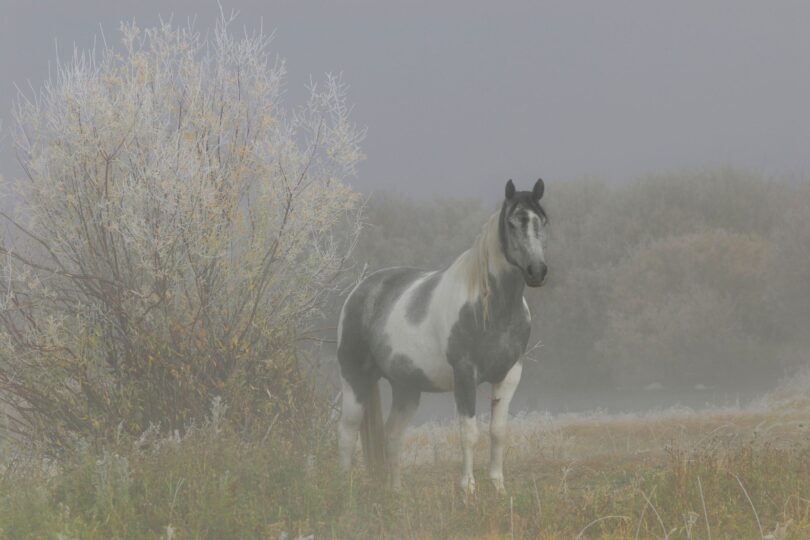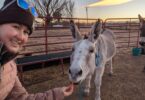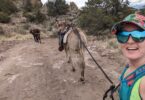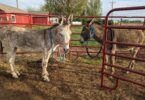Note: This article was originally published on our sister site Love & Let Go.
How to Grieve For Your Horse
Four times, I have had to make the heart wrenching decision to say goodbye to one of my beloved companions. Maybe I should say that a little differently. Four times I have had the privilege of loving one of my beloved companions right up to their last breath.
Making the choice to end the life of an animal you love is never easy, nor should it be. Even when your horse is suffering, the decision to say goodbye is difficult, painful, and scary.
Nothing will take away the pain of such a decision, but it is possible to ease it.
You will likely ask yourself questions like: How can I do this? How can I not only survive their loss, but take an active role in that loss? How will I know I have made the right decision?
Loving Your Horse to the Very End
One of the most important things you can do for yourself and your horse is to recognize that you are simply continuing to do what you have done for them their whole lives—love them. You have spent your horse’s entire life committed to protecting them from pain and suffering.
And this decision, too, is part of your commitment.
After the first time I had to make this decision, I realized that there is no way around it.
This is one of the hardest decisions you will ever have to make. Period.
With some notable exception, there is no way to be completely certainly that you are making the choice at the exact “right” time.
And maybe that is okay. In fact, it is okay and it is survivable.
It is unrealistic to believe that you won’t feel pain, trepidation and uncertainty. There are, however, a few things I have found that, while not in any way making this an easy time in my life, did help me deal with the inevitable pain.
The Best Last Day
If your horse has been chronically ill, or is at such an advanced age that their quality of life has declined, the time may come when you know that you should end their suffering.
This doesn’t have to be a tragic goodbye. It can be a beautiful opportunity to celebrate your horse’s life.
What can you do with your pet – within their current physical limits – that would be a celebration of your remaining time together?
Maybe it is simply feeding special treats, a hand graze in his favorite place, or a gentle walk down the trail.
Or perhaps it is spending the whole day grooming and pampering him in the sunshine.
Give to them in these last days or hours some measure of the joy they have brought you during their lifetime.
The options are as different as the personalities of our horses. You will know what they can handle and what would be most enjoyable for them.
Take Some Pictures
I have pictures of each of my pets on our last days together. For some people this may seem morbid, but for me it was both respectful and healing.
The end of your horse’s life is still a part of their life.
In the days following your pet’s death, the memories of them as they were toward the end – ill, lame, uncomfortable – will start to fade quickly.
You will remember her as a rambunctious filly or him as a youthful colt bounding around the pastures.
This is a mercy of course, but can also exacerbate the thoughts of doubt and guilt. Did I make the right decision? Maybe they weren’t as bad off as I had thought?
A picture can not only provide you with a complete memory of their whole life, but also ease your mind when you need it most.
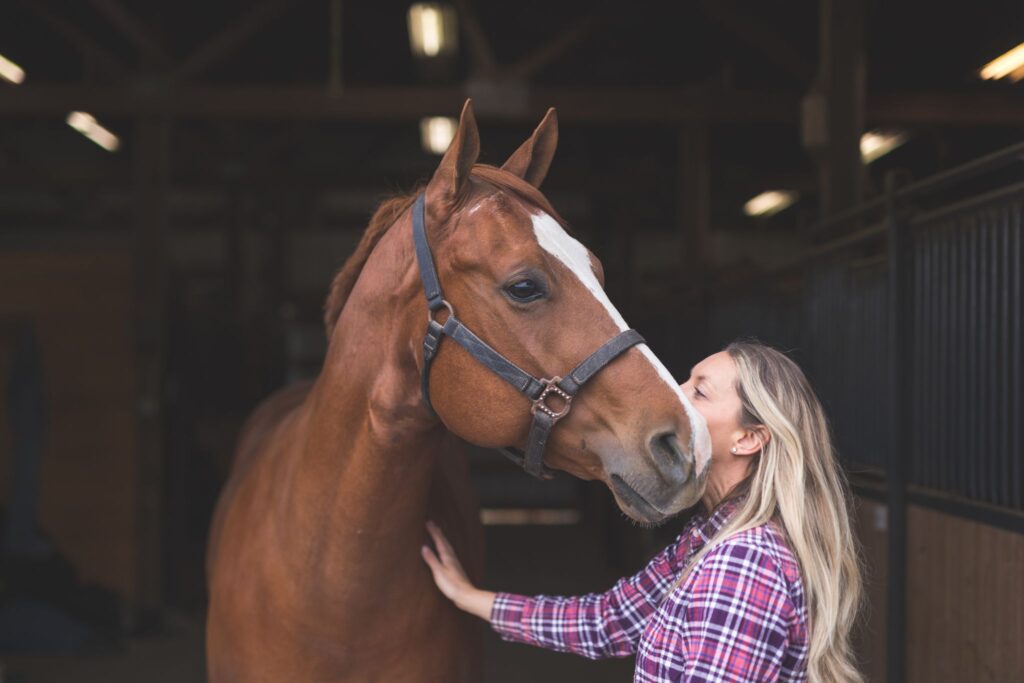
Source: canva
Know There Is Peace
Modern veterinary medicine is truly incredible. The depth of the education and level of skill of today’s vets is extremely impressive.
It is important that you trust that your vet knows what she is doing. Even if—maybe especially if—you have to take your horse to the vet clinic, you can rest assured that the doctor and the entire staff both wants for your loved one’s last moments to be as peaceful as absolutely possible, and is entirely capable of making that so.
And you should also rest easy in this knowledge. It is peaceful.
If you have never witnessed medical euthanasia, you may have all kinds of fears regarding the procedure. For many of us, our minds are filled with horrible scenes of pain and fear for our beloved companions.
These misconceptions can cause such anxiety in us that we wish desperately for our pet to die naturally—preferably very peacefully and in their sleep.
Sometimes, to the point that we avoid making this important decision. Unfortunately, this can actually cause the pain and fear in our horses that we so hoped to avoid, as their condition deteriorates.
In this case, our saying that “Knowledge is Horsepower,” could in fact be modified to “Knowledge is Peace.”
The modern, end-of-life veterinary procedure is respectful, gentle, and as peaceful as possible.
Rather than dying in pain and perhaps even alone, your beloved companion is gently sedated, comforted, and petted while they transition from this life.
If you choose to make it so, it is a moment filled with love and safety. And it can be one of the greatest gifts you give to your beloved equine companion.
Parting Thoughts
The day you meet your pet, you also know that there will be a day when she must leave you.
The time you spend between those two days will be filled with love, joy, frustration, elation, excitement, annoyance and contentment.
And those beautiful days in between come with a price tag. It’s a steep price, but well worth it.
Making the decision to bring about that final day will never be easy, but it doesn’t need to be devastating. It will hurt and you will miss them. If you are given the opportunity to make this decision, however, know that you can do it and you can survive it.
P.S. If you found this article helpful, check out:
- 4 Survival Tactics to Cope with Horse Loss and Grief
- How to Survive Losing a Horse Without Losing Yourself
- Navigating the 5 stages of grief after losing a horse

